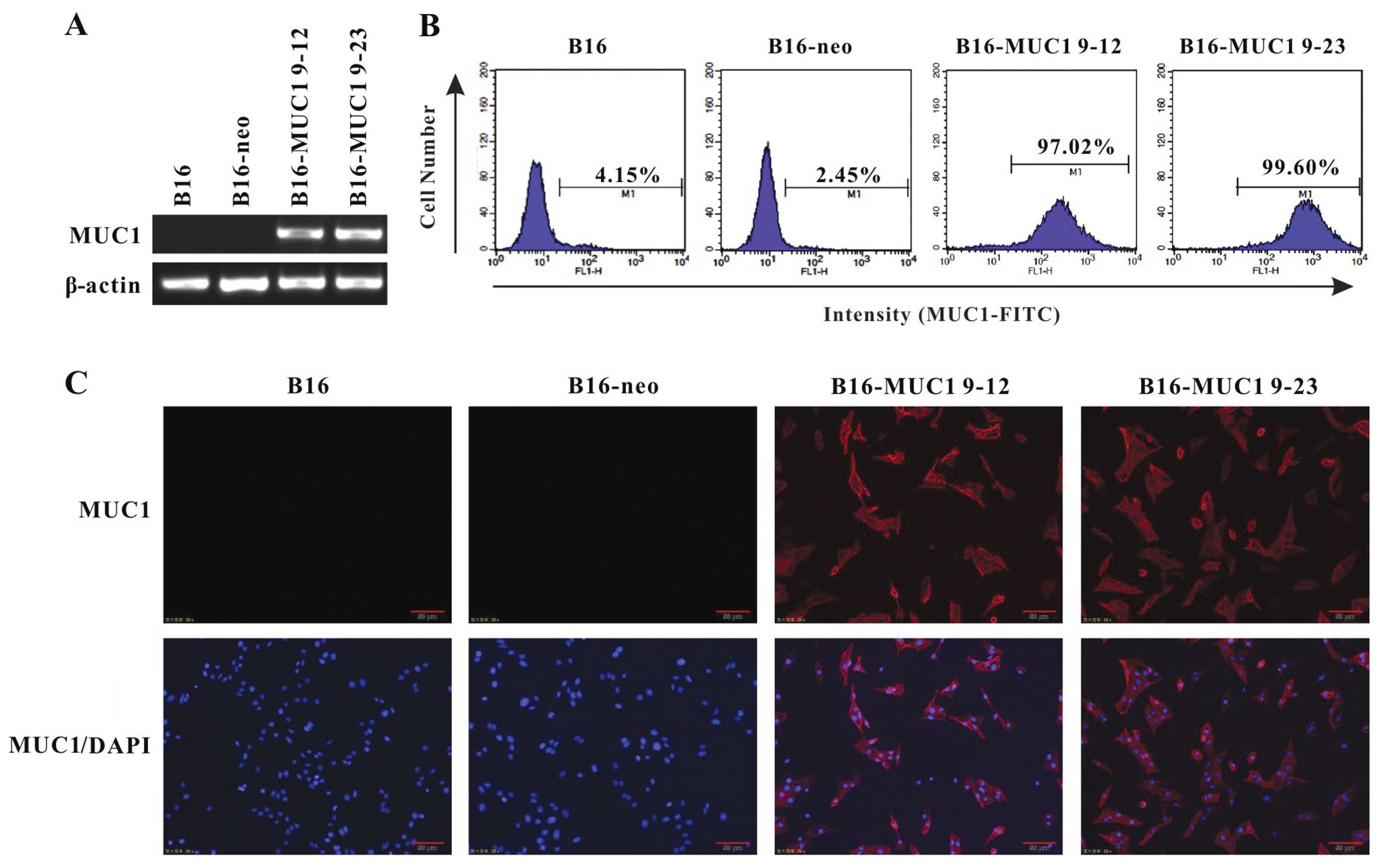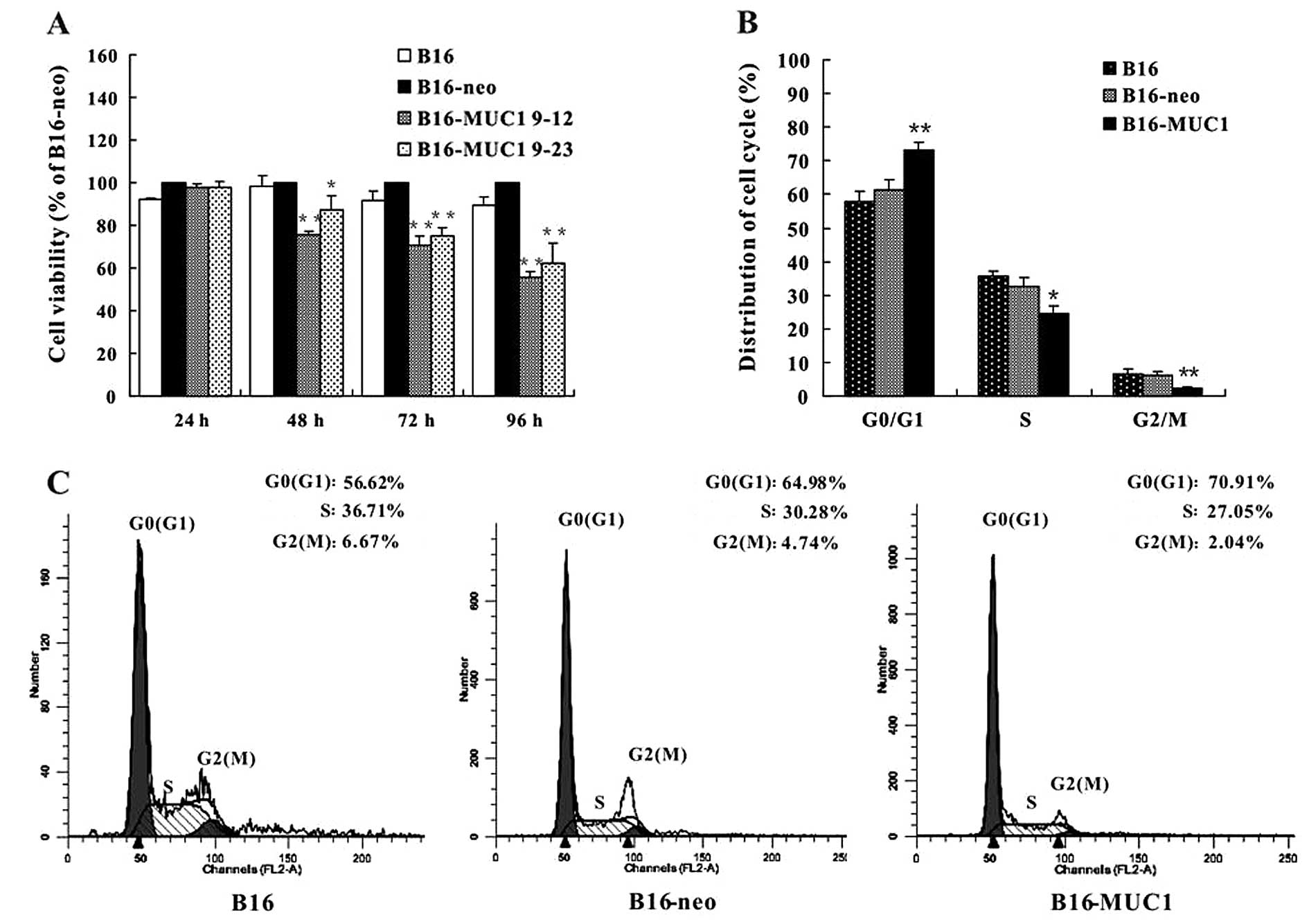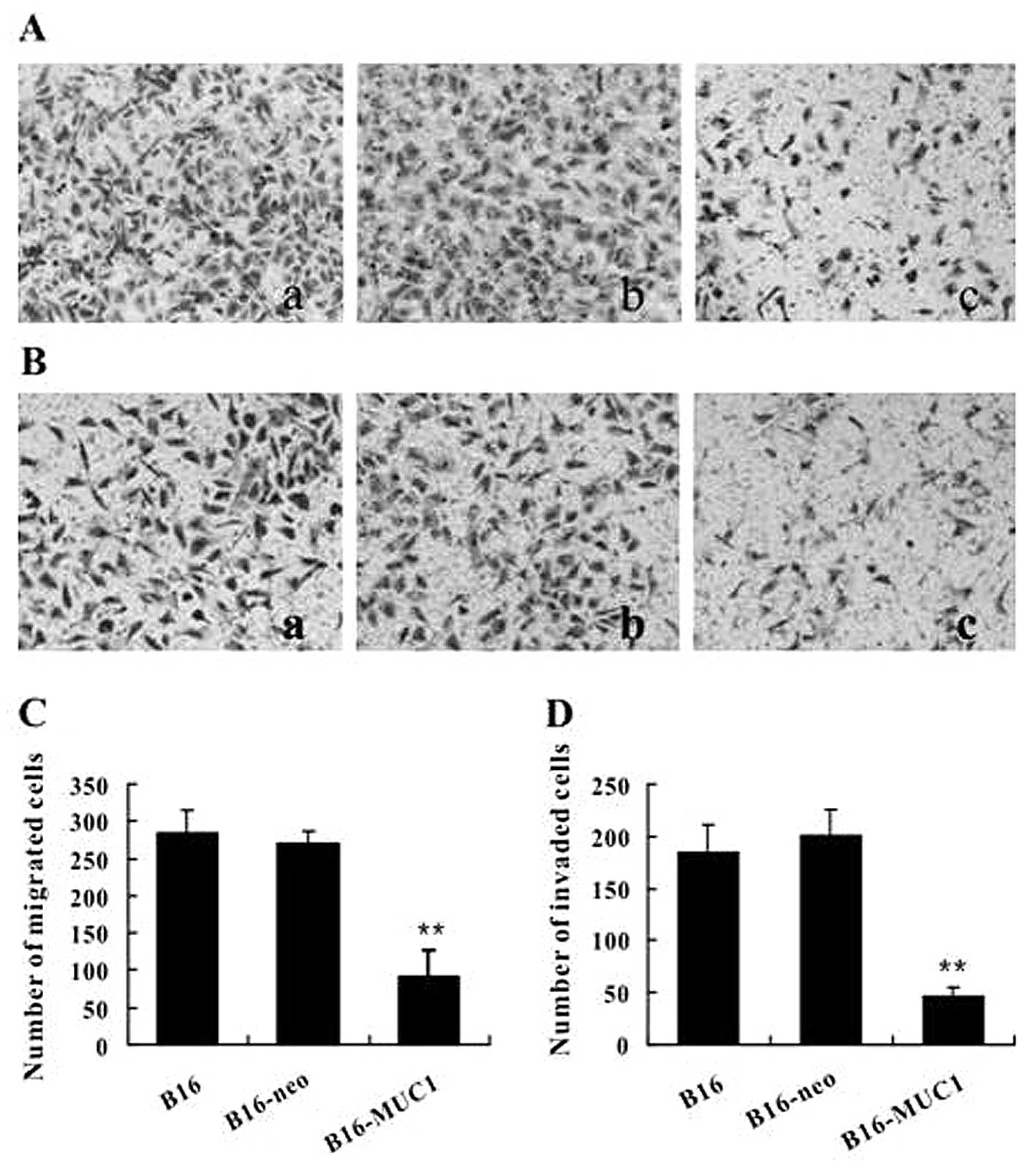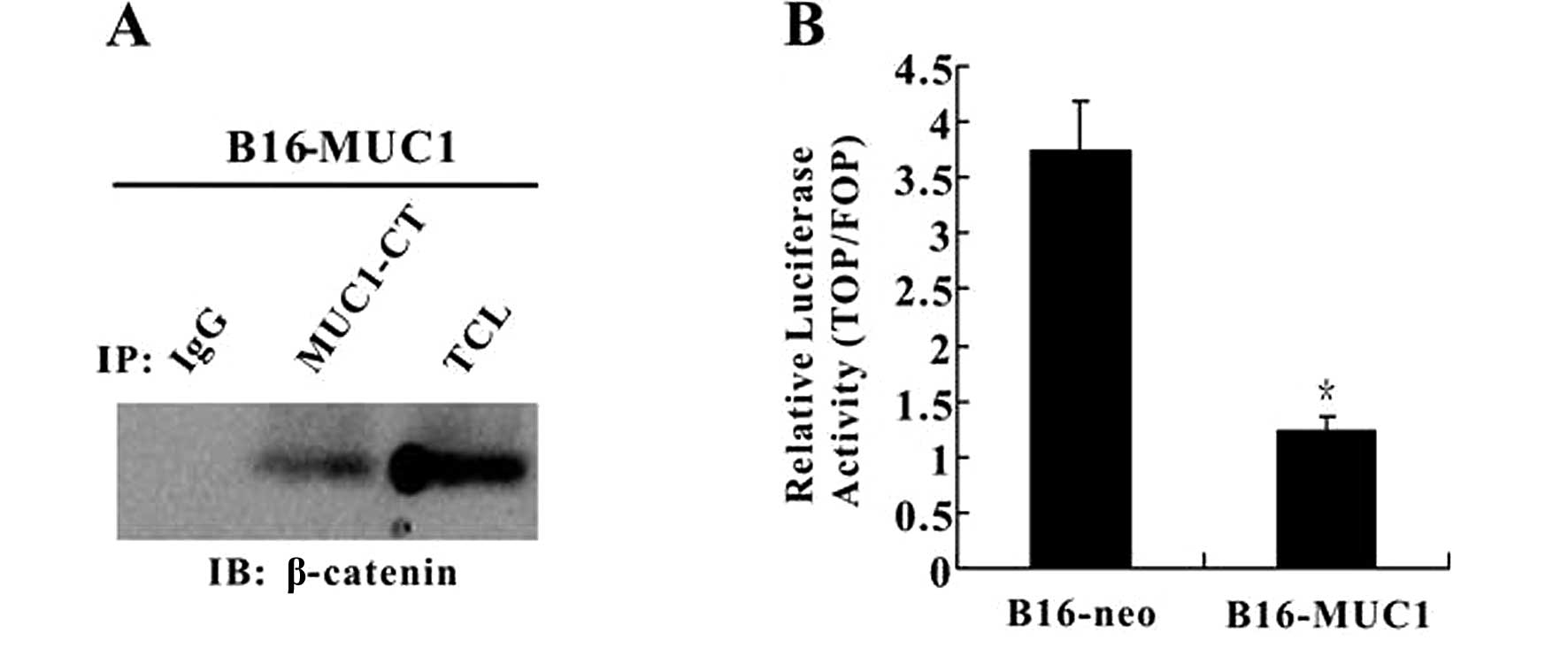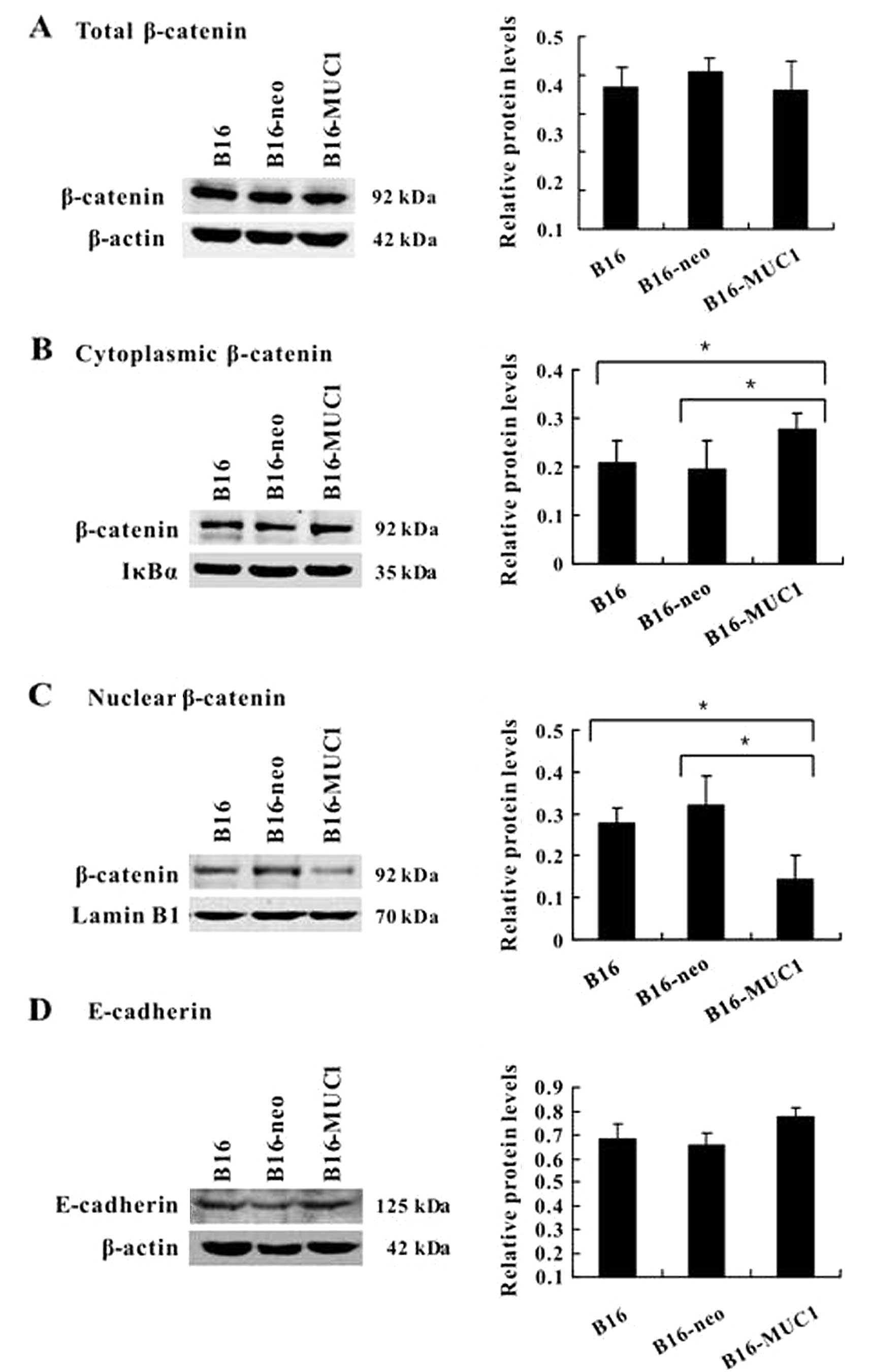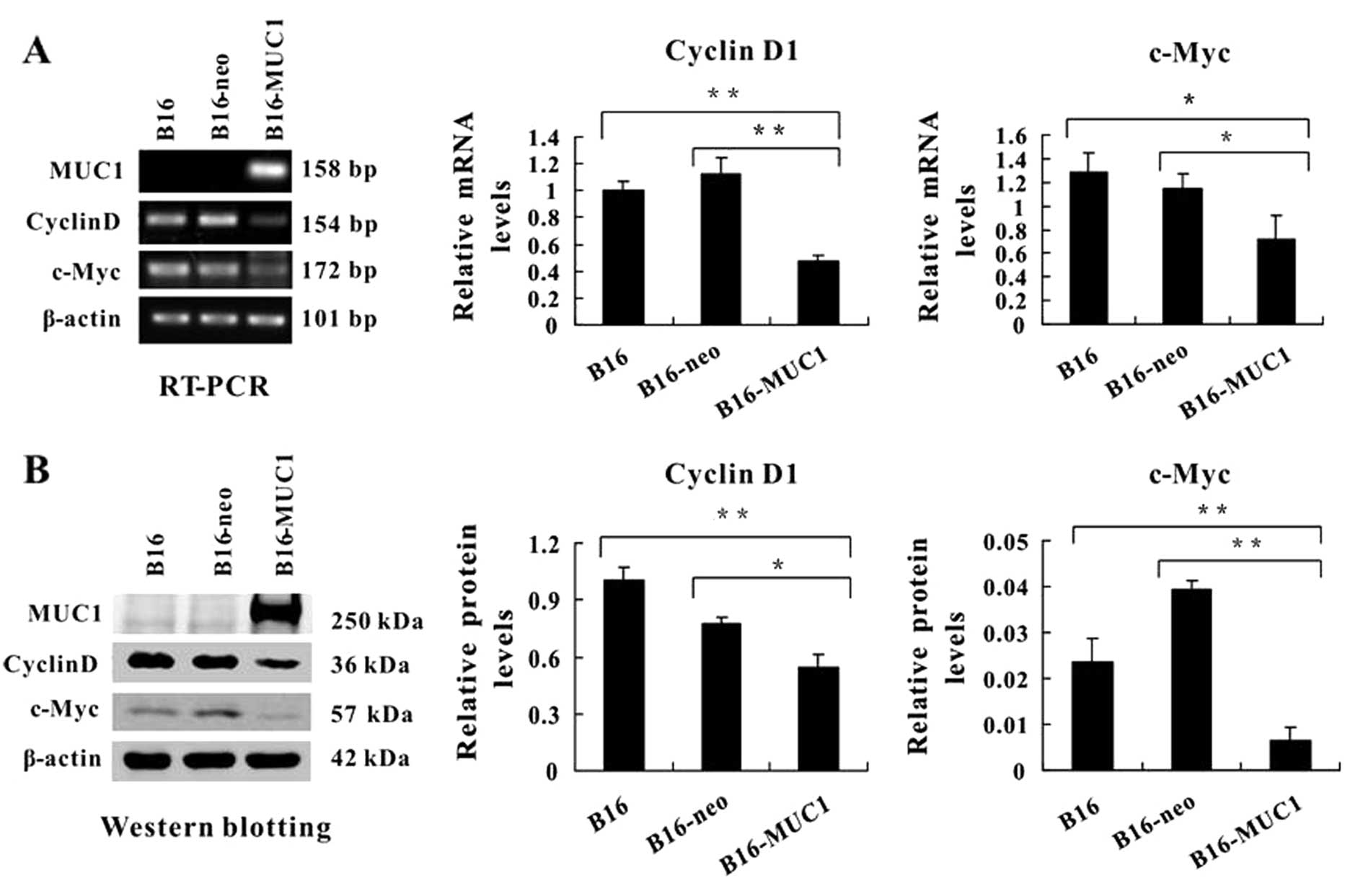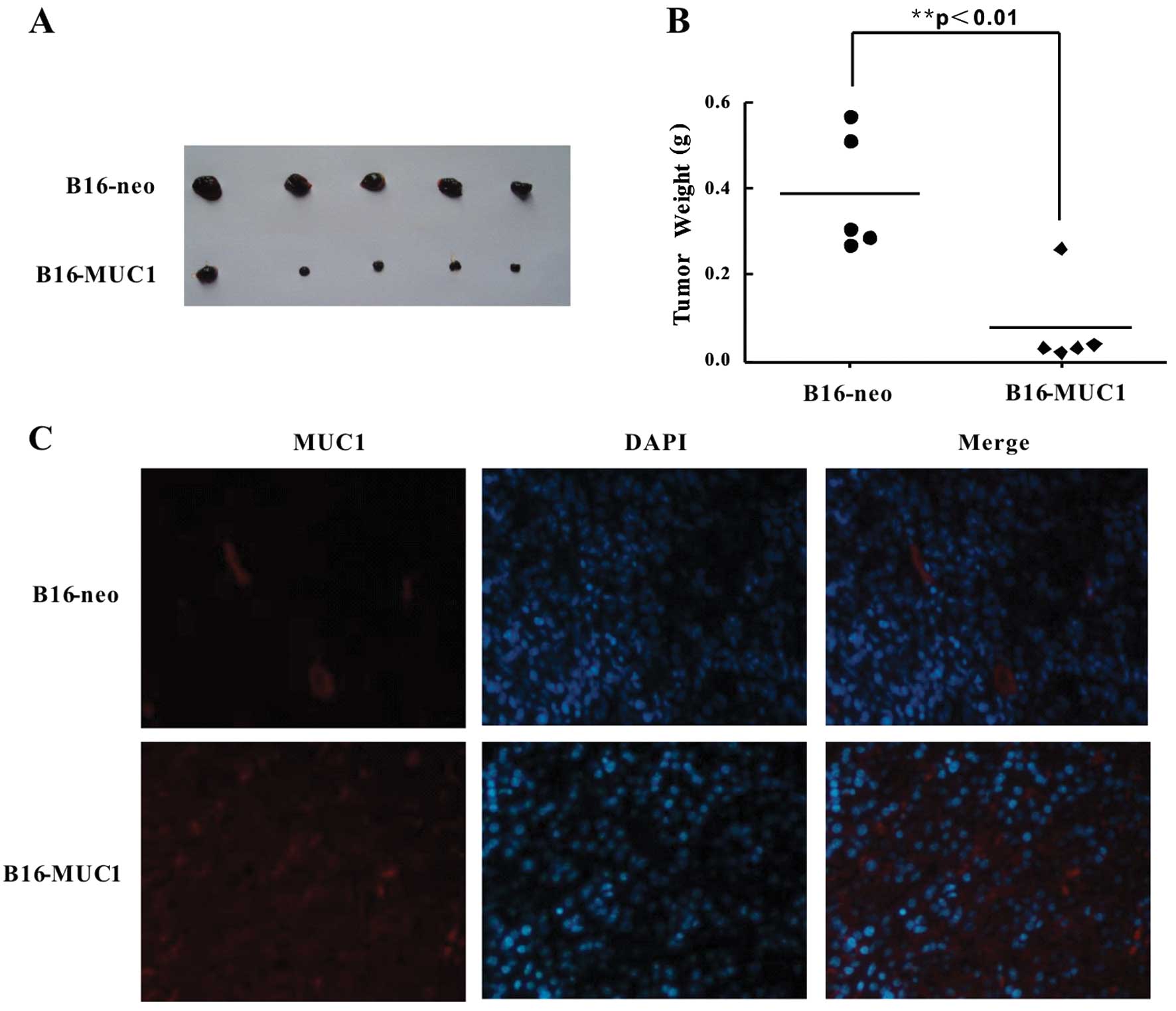|
1
|
Kufe DW: Mucins in cancer: function,
prognosis and therapy. Nat Rev Cancer. 9:874–885. 2009. View Article : Google Scholar : PubMed/NCBI
|
|
2
|
Gendler S, Taylor-Papadimitriou J, Duhig
T, Rothbard J and Burchel J: A highly immunogenic region of a human
polymorphic epithelial mucin expressed by carcinomas is made up of
tandem repeats. J Biol Chem. 263:12820–12823. 1988.PubMed/NCBI
|
|
3
|
Ligtenberg MJ, Kruijshaar L, Buijs F, van
Meijer M, Litvinov SV and Hilkens J: Cell-associated episialin is a
complex containing two proteins derived from a common precursor. J
Biol Chem. 267:6171–6177. 1992.PubMed/NCBI
|
|
4
|
Kufe DW: Targeting the human MUC1
oncoprotein: a tale of two proteins. Cancer Biol Ther. 7:81–84.
2008. View Article : Google Scholar : PubMed/NCBI
|
|
5
|
Li Y, Bharti A, Chen D, Gong J and Kufe D:
Interaction of glycogen synthase kinase 3beta with the DF3/MUC1
carcinoma-associated antigen and beta-catenin. Mol Cell Biol.
18:7216–7224. 1998.PubMed/NCBI
|
|
6
|
Li Y, Kuwahara H, Ren J, Wen G and Kufe D:
The c-Src tyrosine kinase regulates signaling of the human DF3/MUC1
carcinoma-associated antigen with GSK3 beta and beta-catenin. J
Biol Chem. 276:6061–6064. 2001. View Article : Google Scholar : PubMed/NCBI
|
|
7
|
Ren J, Li Y and Kufe D: Protein kinase C
delta regulates function of the DF3/MUC1 carcinoma antigen in
beta-catenin signaling. J Biol Chem. 277:17616–17622. 2002.
View Article : Google Scholar : PubMed/NCBI
|
|
8
|
Raina D, Ahmad R, Kumar S, et al: MUC1
oncoprotein blocks nuclear targeting of c-Abl in the apoptotic
response to DNA damage. EMBO J. 25:3774–3783. 2006. View Article : Google Scholar : PubMed/NCBI
|
|
9
|
Wei X, Xu H and Kufe D: Human MUC1
oncoprotein regulates p53-responsive gene transcription in the
genotoxic stress response. Cancer Cell. 7:167–178. 2005. View Article : Google Scholar : PubMed/NCBI
|
|
10
|
Wei X, Xu H and Kufe D: MUC1 oncoprotein
stabilizes and activates estrogen receptor alpha. Mol Cell.
21:295–305. 2006. View Article : Google Scholar : PubMed/NCBI
|
|
11
|
Wei X, Xu H and Kufe D: Human mucin 1
oncoprotein represses transcription of the p53 tumor suppressor
gene. Cancer Res. 67:1853–1858. 2007. View Article : Google Scholar : PubMed/NCBI
|
|
12
|
Yamamoto M, Bharti A, Li Y and Kufe D:
Interaction of the DF3/MUC1 breast carcinoma-associated antigen and
beta-catenin in cell adhesion. J Biol Chem. 272:12492–12494. 1997.
View Article : Google Scholar : PubMed/NCBI
|
|
13
|
Huang L, Chen D, Liu D, Yin L, Kharbanda S
and Kufe D: MUC1 oncoprotein blocks glycogen synthase kinase
3beta-mediated phosphorylation and degradation of beta-catenin.
Cancer Res. 65:10413–10422. 2005. View Article : Google Scholar : PubMed/NCBI
|
|
14
|
Ahmad R, Raina D, Trivedi V, et al: MUC1
oncoprotein activates the IkappaB kinase beta complex and
constitutive NF-kappaB signaling. Nat Cell Biol. 9:1419–1427. 2007.
View Article : Google Scholar : PubMed/NCBI
|
|
15
|
Hu XF, Yang E, Li J and Xing PX: MUC1
cytoplasmic tail: a potential therapeutic target for ovarian
carcinoma. Expert Rev Anticancer Ther. 6:1261–1271. 2006.
View Article : Google Scholar : PubMed/NCBI
|
|
16
|
Kufe DW: Functional targeting of the MUC1
oncogene in human cancers. Cancer Biol Ther. 8:1197–1203. 2009.
View Article : Google Scholar : PubMed/NCBI
|
|
17
|
Shin CY, Park KH, Ryu BK, Choi EY, Kim KC
and Ko KH: Squamous differentiation downregulates Muc1 mucin in
hamster tracheal surface epithelial cell. Biochem Biophys Res
Commun. 271:641–646. 2000. View Article : Google Scholar : PubMed/NCBI
|
|
18
|
Ligtenberg MJ, Buijs F, Vos HL and Hilkens
J: Suppression of cellular aggregation by high levels of episialin.
Cancer Res. 52:2318–2324. 1992.PubMed/NCBI
|
|
19
|
Wesseling J, van der Valk SW, Vos HL,
Sonnenberg A and Hilkens J: Episialin (MUC1) overexpression
inhibits integrin-mediated cell adhesion to extracellular matrix
components. J Cell Biol. 129:255–265. 1995. View Article : Google Scholar : PubMed/NCBI
|
|
20
|
Satoh S, Hinoda Y, Hayashi T, Burdick MD,
Imai K and Hollingsworth MA: Enhancement of metastatic properties
of pancreatic cancer cells by MUC1 gene encoding an anti-adhesion
molecule. Int J Cancer. 88:507–518. 2000. View Article : Google Scholar : PubMed/NCBI
|
|
21
|
Regimbald LH, Pilarski LM, Longenecker BM,
Reddish MA, Zimmermann G and Hugh JC: The breast mucin MUC1 as a
novel adhesion ligand for endothelial intracellular adhesion
molecule 1 in breast cancer. Cancer Res. 56:4244–4249.
1996.PubMed/NCBI
|
|
22
|
Agrawal B and Longenecker BM: MUC1
mucin-mediated regulation of human T cells. Int Immunol.
17:391–399. 2005. View Article : Google Scholar : PubMed/NCBI
|
|
23
|
Li Y, Liu D, Chen D, Kharbanda S and Kufe
D: Human DF3/MUC1 carcinoma-associated protein functions as an
oncogene. Oncogene. 22:6107–6110. 2003. View Article : Google Scholar : PubMed/NCBI
|
|
24
|
Huang L, Ren J, Chen D, Li Y, Kharbanda S
and Kufe D: MUC1 cytoplasmic domain coactivates Wnt target gene
transcription and confers transformation. Cancer Biol Ther.
2:702–706. 2003. View Article : Google Scholar : PubMed/NCBI
|
|
25
|
Raina D, Ahmad R, Chen D, Kumar S,
Kharbanda S and Kufe D: MUC1 oncoprotein suppresses activation of
the ARF-MDM2-p53 pathway. Cancer Biol Ther. 7:1959–1967. 2008.
View Article : Google Scholar : PubMed/NCBI
|
|
26
|
Li Y, Ahmad R, Kosugi M, et al: Survival
of human multiple myeloma cells is dependent on MUC1 C-terminal
transmembrane subunit oncoprotein function. Mol Pharmacol.
78:166–174. 2010. View Article : Google Scholar : PubMed/NCBI
|
|
27
|
Raina D, Kosugi M, Ahmad R, et al:
Dependence on the MUC1-C oncoprotein in non-small cell lung cancer
cells. Mol Cancer Ther. 10:806–816. 2011. View Article : Google Scholar : PubMed/NCBI
|
|
28
|
Schroeder JA, Adriance MC, Thompson MC,
Camenisch TD and Gendler SJ: MUC1 alters beta-catenin-dependent
tumor formation and promotes cellular invasion. Oncogene.
22:1324–1332. 2003. View Article : Google Scholar : PubMed/NCBI
|
|
29
|
Hattrup CL and Gendler SJ: MUC1 alters
oncogenic events and transcription in human breast cancer cells.
Breast Cancer Res. 8:R372006. View
Article : Google Scholar : PubMed/NCBI
|
|
30
|
Costa NR, Paulo P, Caffrey T,
Hollingsworth MA and Santos-Silva F: Impact of MUC1 mucin
downregulation in the phenotypic characteristics of MKN45 gastric
carcinoma cell line. PLoS One. 6:e269702011. View Article : Google Scholar : PubMed/NCBI
|
|
31
|
Yuan Z, Liu X, Wong S, Machan JT and Chung
MA: MUC1 knockdown with RNA interference inhibits pancreatic cancer
growth. J Surg Res. 157:e39–e46. 2009. View Article : Google Scholar : PubMed/NCBI
|
|
32
|
Schroeder JA, Masri AA, Adriance MC, et
al: MUC1 overexpression results in mammary gland tumorigenesis and
prolonged alveolar differentiation. Oncogene. 23:5739–5747. 2004.
View Article : Google Scholar : PubMed/NCBI
|
|
33
|
Brossart P, Schneider A, Dill P, et al:
The epithelial tumor antigen MUC1 is expressed in hematological
malignancies and is recognized by MUC1-specific cytotoxic
T-lymphocytes. Cancer Res. 61:6846–6850. 2001.PubMed/NCBI
|
|
34
|
Yuan Z, Wong S, Borrelli A and Chung MA:
Down-regulation of MUC1 in cancer cells inhibits cell migration by
promoting E-cadherin/catenin complex formation. Biochem Biophys Res
Commun. 362:740–746. 2007. View Article : Google Scholar : PubMed/NCBI
|
|
35
|
Gao J, McConnell MJ, Yu B, et al: MUC1 is
a downstream target of STAT3 and regulates lung cancer cell
survival and invasion. Int J Oncol. 35:337–345. 2009.PubMed/NCBI
|
|
36
|
Kufe D: Oncogenic function of the MUC1
receptor subunit in gene regulation. Oncogene. 29:5663–5666. 2010.
View Article : Google Scholar : PubMed/NCBI
|
|
37
|
Retterspitz MF, Mönig SP, Schreckenberg S,
et al: Expression of {beta}-catenin, MUC1 and c-met in diffuse-type
gastric carcinomas: correlations with tumour progression and
prognosis. Anticancer Res. 30:4635–4641. 2010.
|
|
38
|
Lillehoj EP, Lu W, Kiser T, Goldblum SE
and Kim KC: MUC1 inhibits cell proliferation by a
beta-catenin-dependent mechanism. Biochim Biophys Acta.
1773:1028–1038. 2007. View Article : Google Scholar : PubMed/NCBI
|
|
39
|
Tetsu O and McCormick F: Beta-catenin
regulates expression of cyclin D1 in colon carcinoma cells. Nature.
398:422–426. 1999. View
Article : Google Scholar : PubMed/NCBI
|
|
40
|
Sutherland RL and Musgrove EA: Cyclin D1
and mammary carcinoma: new insights from transgenic mouse models.
Breast Cancer Res. 4:14–17. 2002. View
Article : Google Scholar : PubMed/NCBI
|
|
41
|
Lavergne E, Hendaoui I, Coulouarn C, et
al: Blocking Wnt signaling by SFRP-like molecules inhibits in vivo
cell proliferation and tumor growth in cells carrying active
β-catenin. Oncogene. 30:423–433. 2011.PubMed/NCBI
|
|
42
|
Wijnhoven BP, Dinjens WN and Pignatelli M:
E-cadherin-catenin cell-cell adhesion complex and human cancer. Br
J Surg. 87:992–1005. 2000. View Article : Google Scholar : PubMed/NCBI
|
|
43
|
Premaratne P, Welén K, Damber JE, Hansson
GC and Bäckström M: O-glycosylation of MUC1 mucin in
prostate cancer and the effects of its expression on tumor growth
in a prostate cancer xenograft model. Tumour Biol. 32:203–213.
2011. View Article : Google Scholar
|
|
44
|
Cascio S, Zhang L and Finn OJ: MUC1
protein expression in tumor cells regulates transcription of
proinflammatory cytokines by forming a complex with nuclear
factor-κB p65 and binding to cytokine promoters: importance of
extracellular domain. J Biol Chem. 286:42248–42256. 2011.PubMed/NCBI
|
|
45
|
Spicer AP, Parry G, Patton S and Gendler
SJ: Molecular cloning and analysis of the mouse homologue of the
tumor-associated mucin, MUC1, reveals conservation of potential
O-glycosylation sites, transmembrane, and cytoplasmic
domains and a loss of minisatellite-like polymorphism. J Biol Chem.
266:15099–15109. 1991.PubMed/NCBI
|















